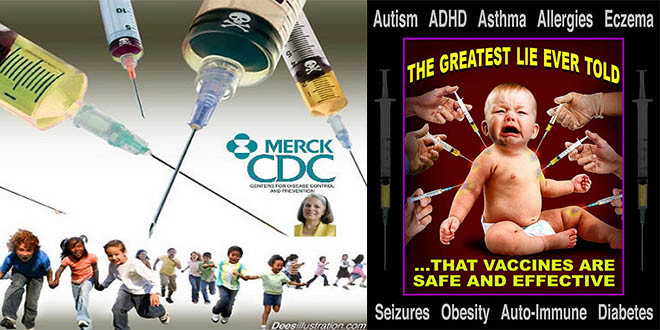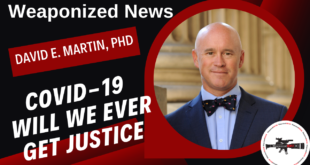by Lawrence Solomon | HUFFINGTONPOST.CA | February 6, 2015
Merck, the pharmaceutical giant, is facing a slew of controversies over its Measles-Mumps-Rubella (MMR) vaccine following numerous allegations of wrongdoing from different parties in the medical field, including two former Merck scientists-turned-whistleblowers. A third whistleblower, this one a scientist at the Centers for Disease Control, also promises to bring Merck grief following his confession of misconduct involving the same MMR vaccine.
The controversies will find Merck defending itself and its vaccine in at least two federal court cases after a U.S. District judge earlier this month threw out Merck’s attempts at dismissal. Merck now faces federal charges of fraud from the whistleblowers, a vaccine competitor and doctors in New Jersey and New York. Merck could also need to defend itself in Congress: The staff of representative Bill Posey (R-Fla) — a longstanding critic of the CDC interested in an alleged link between vaccines and autism — is now reviewing some 1,000 documents that the CDC whistleblower turned over to them.
The first court case, United States v. Merck & Co., stems from claims by two former Merck scientists that Merck “fraudulently misled the government and omitted, concealed, and adulterated material information regarding the efficacy of its mumps vaccine in violation of the FCA [False Claims Act].”
According to the whistleblowers’ court documents, Merck’s misconduct was far-ranging: It “failed to disclose that its mumps vaccine was not as effective as Merck represented, (ii) used improper testing techniques, (iii) manipulated testing methodology, (iv) abandoned undesirable test results, (v) falsified test data, (vi) failed to adequately investigate and report the diminished efficacy of its mumps vaccine, (vii) falsely verified that each manufacturing lot of mumps vaccine would be as effective as identified in the labeling, (viii) falsely certified the accuracy of applications filed with the FDA, (ix) falsely certified compliance with the terms of the CDC purchase contract, (x) engaged in the fraud and concealment describe herein for the purpose of illegally monopolizing the U.S. market for mumps vaccine, (xi) mislabeled, misbranded, and falsely certified its mumps vaccine, and (xii) engaged in the other acts described herein to conceal the diminished efficacy of the vaccine the government was purchasing.”
These fraudulent activities, say the whistleblowers, were designed to produce test results that would meet the FDA’s requirement that the mumps vaccine was 95 per cent effective. To the whistleblowers’ delight, the judge dismissed Merck’s objections to the case proceeding, finding the whistleblowers had plausible grounds on all of the claims lodged against Merck.
 Weaponized News New World Order politics, economics and current events
Weaponized News New World Order politics, economics and current events







